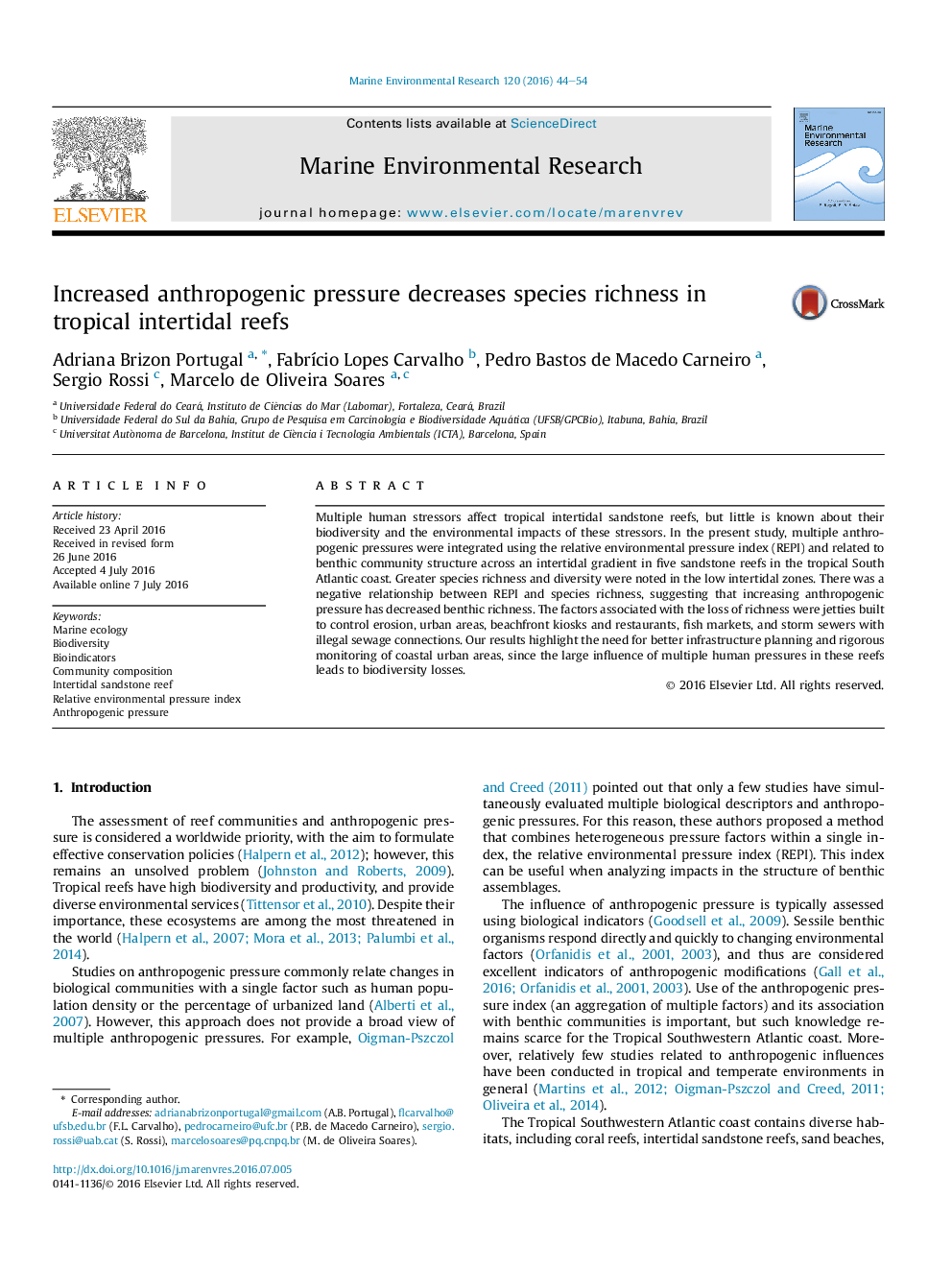| Article ID | Journal | Published Year | Pages | File Type |
|---|---|---|---|---|
| 4550577 | Marine Environmental Research | 2016 | 11 Pages |
•We examined benthic communities in five tropical intertidal sandstone reefs.•High relative environmental pressure index (REPI) indicates high anthropogenic pressure.•Increasing REPI decreases species richness.•Beach kiosks and beachfront restaurants, percentage of urban areas, storm sewers, fish markets and jetties showed negative relationship with species richness.•We provide a monitoring and conservation framework for tropical sandstone reefs.
Multiple human stressors affect tropical intertidal sandstone reefs, but little is known about their biodiversity and the environmental impacts of these stressors. In the present study, multiple anthropogenic pressures were integrated using the relative environmental pressure index (REPI) and related to benthic community structure across an intertidal gradient in five sandstone reefs in the tropical South Atlantic coast. Greater species richness and diversity were noted in the low intertidal zones. There was a negative relationship between REPI and species richness, suggesting that increasing anthropogenic pressure has decreased benthic richness. The factors associated with the loss of richness were jetties built to control erosion, urban areas, beachfront kiosks and restaurants, fish markets, and storm sewers with illegal sewage connections. Our results highlight the need for better infrastructure planning and rigorous monitoring of coastal urban areas, since the large influence of multiple human pressures in these reefs leads to biodiversity losses.
Graphical abstractFigure optionsDownload full-size imageDownload as PowerPoint slide
